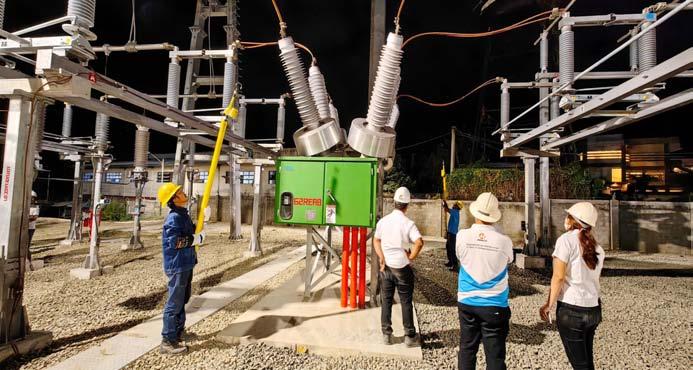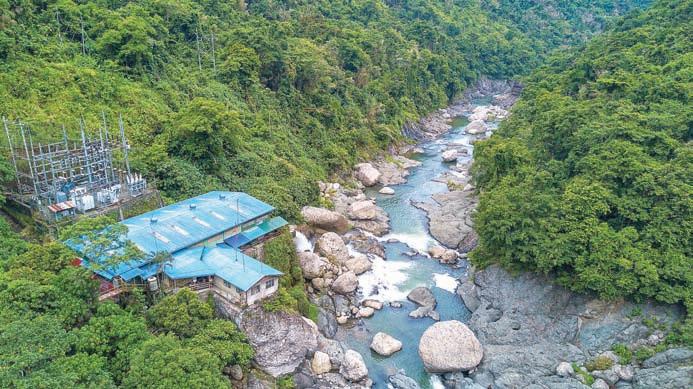
6 minute read
A working Congress S
PEAKER Martin Romualdez is on the right track in urging the House of Representatives to focus on their job of lawmaking.
“Rather than engaging in politicking, I would rather that we, in the House of Representatives, remain focused on more urgent matters. The Uniteam, which the House leadership has always been a part of, must continue to focus on finding immediate solutions to problems of ordinary Filipinos.”
Speaker Romualdez has issued a timely and appropriate reminder to the leaders and members of the House to adhere to the same performance level that allowed them to approve on third and final reading at least 29 of the 42 bills that comprise the Marcos administration’s legislative agenda.
Among the bills already approved by the House are those condoning the debts of our agrarian reform beneficiaries, the establishment of specialty centers in the provinces similar to the Lung and Heart Centers in Metro Manila, and the Magna Carta bills that seek to protect the rights and promote the welfare of barangay health workers and seafarers.
In fact, the legislature has to work on a number of priority bills.
Among these is the National Government
AMIDST the debate about military pension benefits, some quarters wished the government reconsidered the plan of the last administration to resurrect the Philippine Constabulary.
In the middle of former President Duterte’s term, he expressed an interest in bringing back the PC.
I never found out why he did not push thru with it.
But I remember one of his reasons was his belief the peace and order problems in the country needed an organization with the capability of the old PC to better deal with the kind of internal security situation we continue to experience to this day.
Indeed, the PC had that unique capability of being military and police at the same time, depending on the demands of the operational situation due to the training PC personnel underwent.
It was an ideal force to do battle with an insurgency war which by its very nature was a low intensity conflict.
Combat in such a scenario was mostly composed of small unit actions which the Constabulary excelled at, combined with police operations like applying for search and arrest warrants and the subsequent filing of cases in court.
Whether this type of capability is still what is needed at this time to finally solve our more than 50-year insurgency should be carefully studied.
We must also remember there are critics of the PC who are still around who have many things to say about the role played by the PC during the turbulent years of martial law. They seem to forget the PC played a major role in the country’s return to democratic role. We also do not know whether such an idea can attract enough support from Malacanang and Congress because a law will have to be passed to make the idea a reality.
Another stumbling block is the Constitution which mandates the formation of a national police force that must be civilian in character. This Constitutional provision will have to be amended and I do not think there is an appetite to change that provision any time soon.
Rightsizing Program, which would enhance the government’s institutional capacity to perform its mandate and provide better services, while ensuring optimal and efficient use of resources.
The E-Government Act provides for the works to protect cultural heritage in conflict zones. Iraq is still recovering from decades of dictatorship and war, but it faces an additional peril.

But there are perhaps two very good reasons why resurrecting the PC should indeed be considered.
One is changing strategic priorities not only in the country but in the region.
Our AFP must now move away from internal stability operations and concentrate on external defense because of the WPS and Taiwan issues.
It is not advisable for the AFP to be concentrating on both internal and external defense.
The bulk of internal stability operations should now be given to a force well suited to handle low intensity conflicts.
The PC can do this, freeing the AFP to modernize, reorganize and adjust doctrines to handle territorial defense.
Meanwhile, the creation of a Department of Water Resources had been proposed as early as 2019 to address concerns over water shortages.
The proposed bill would adopt the Integrated Water Resource Management (IWRM) as the strategic framework for national water management, policy-making and planning.
The Internet Transaction Act or E-Commerce Law will establish an effective regulation of commercial activities through the internet or electronic means to ensure that consumer rights and data privacy are protected, innovation is encouraged, fair advertising practices and competition are promoted, online transactions are secured, intellectual property rights are protected, and product standards and safety are observed.
The National Land Use Act will provide for a rational and holistic management and development of country’s land and water resources and compel land owners and local government units to ensure sustainable development on their land.
All this tells us one thing: Lawmakers should now work double-time to discuss pending measures that will enhance economic growth as well as accelerate social and political reforms in the years ahead.
The United Nations ranks it as one of the world’s five countries most impacted by some effects of climate change.
Iraq endures blistering summer heat and frequent dust storms.
Another reason which might attract the support of the Executive Branch and Congress, which is something totally unrelated to counter insurgency work, is that bringing back the PC could just be what is needed to provide a solution to the ticklish problem of pension benefits.
Before the PNP Law of 1992, the PC was part of the AFP and, at its zenith, it numbered about 33,000.
The local police units – although under the PC -- belonged to and were paid by Local Government Units to include the fire departments and jail management personnel.
After 1992, these people were paid by the national government.
Currently, the PNP strength is about 220,000, not counting the fire and jail personnel. This will continue to increase because the
Declining rain as well as upstream dams have reduced the flow of the Tigris and Euphrates rivers where ancient civilizations flourished.
Salim bemoaned the “terrifying” state of the rivers which suffer from rising “water salinity and pollution.”
A major aim for him, he said, is to enable young Iraqis to “connect with the environment.”
‘Revive the heritage’
Salim hails from a prominent family of artists and diplomats -- being the son of artist Nazar Salim and the nephew of famous sculptor and painter Jawad Salim.
His love for traditional Iraqi boats dates back to 1977, when he was the youngest crew member aboard the Tigris, a ship constructed of river reeds by Heyerdahl, the Norwegian adventurer.
To prove that the ancient civilisations of Mesopotamia, Egypt and the Indus Valley were in contact across the seas, they embarked on a 143-day voyage spanning 6,800 kilometers, from Iraq through the Gulf and the Arabian Sea to Pakistan and on to Djibouti.
In 2013, Salim took part in another expedition of traditional boats, organized by the group Nature Iraq, that sailed 1,200 strength has to satisfy the population ratio of one is to 500 people. If the PC is resurrected and the strength is pegged to not more than 45,000, the savings would be enormous. kilometers along the Tigris from southern Turkey to Iraq’s far south.
It is not, however, as simple as that because, naturally, the pay and retirement benefits of the civilian police may have to go back to the local government units and this must have to be properly rationalized. One thing that will probably happen is the police, fire and jail personnel will revert to the GSIS like the way it was before their incorporation to the PNP.
But there will be no danger of their salaries and other allowances being cut.
All that will happen is the indexation of pensions to active duty uniformed personnel will no longer be the same. The pension indexation will then only be to inflation which should be good enough.
The other issue to resolve is: will a resurrected PC go back as part of the AFP or will it stand alone under a new Department? Still another is where will be the source of the officers come from?
From the Philippine Military Academy or a newly established Philippine Constabulary School?
On this score, the government should look at the Italian Carabinieri, Spanish Guardia Civil or the National Gendarmerie of France to see what is suited for the country. These three organizations have very interesting histories and have similarities to the PC.
After all is said and done, everything will depend on what the priorities of the government are at this time.
If national security issues are at the upper echelon of its programs, then perhaps it is worth considering.
But if it is a low priority, then there is no chance at all and people wishing this thing to happen should just forget it.
Salim would also love to revive Iraq’s traditional round boat made of woven reeds, the guffa, which resembles a wicker basket that spans more than two meters.
But his ambition is also to find a “business plan” to make his challenging project financially viable and create jobs.
One of Iraq’s traditional boat builders is Zouheir Raisan, 40, who lives by the marshes in Huweir, 400 kilometers south of Baghdad.
Business had stopped in the 1990s but was slowly revived four years ago, a change the father of eight welcomes to supplement his main job as a truck driver.
Under the shade of a mudhif reed structure, he was sawing boards and helping his cousin nail them to a boat frame.
He said he remembers helping his father and brothers make meshhoufs, some measuring up to 11 metres long.
Other countries, he said, are sending experts “in search of this heritage, to encourage its rebirth,” he said.
“Why don’t we bring it back to life ourselves?” AFP








